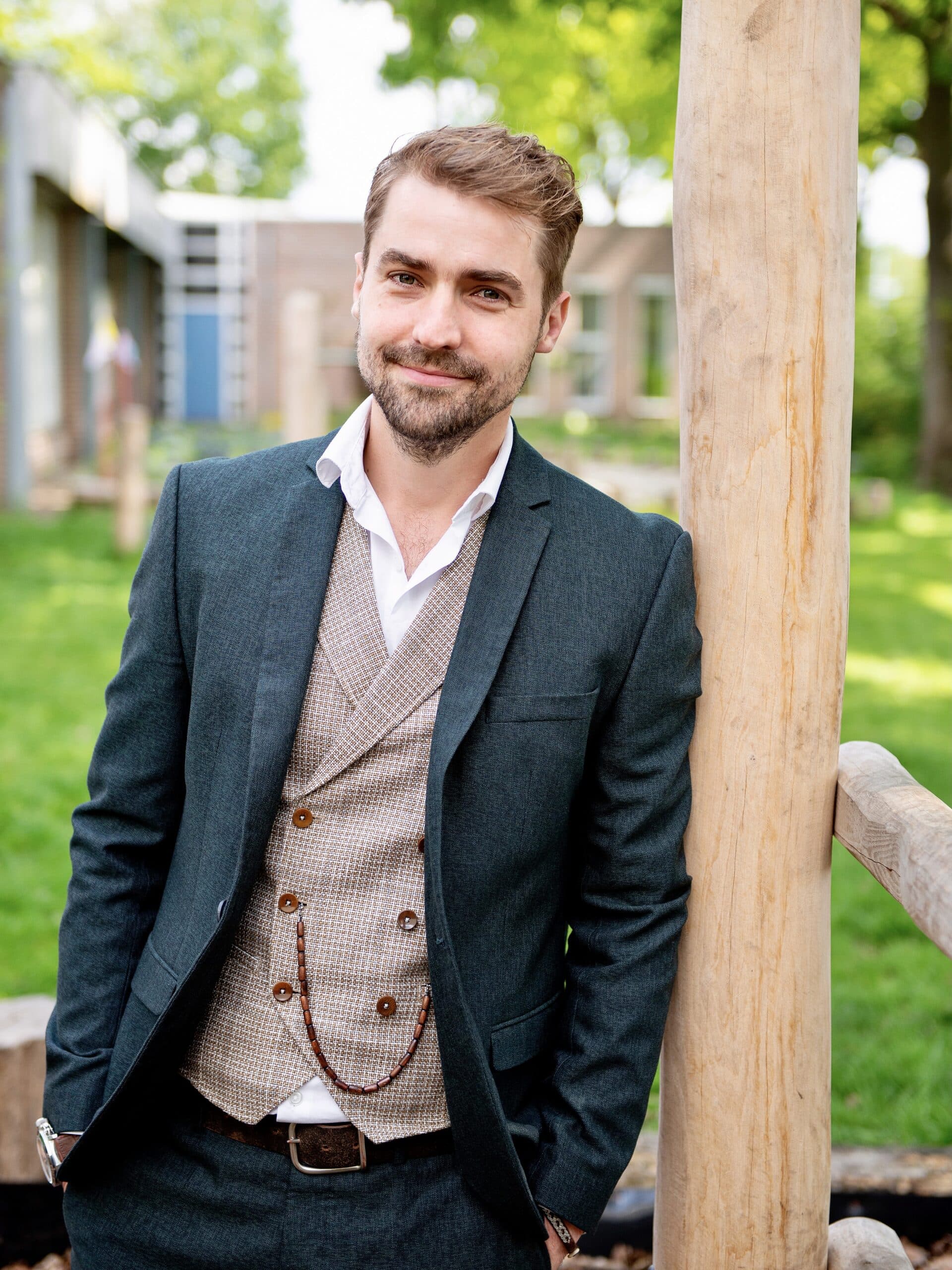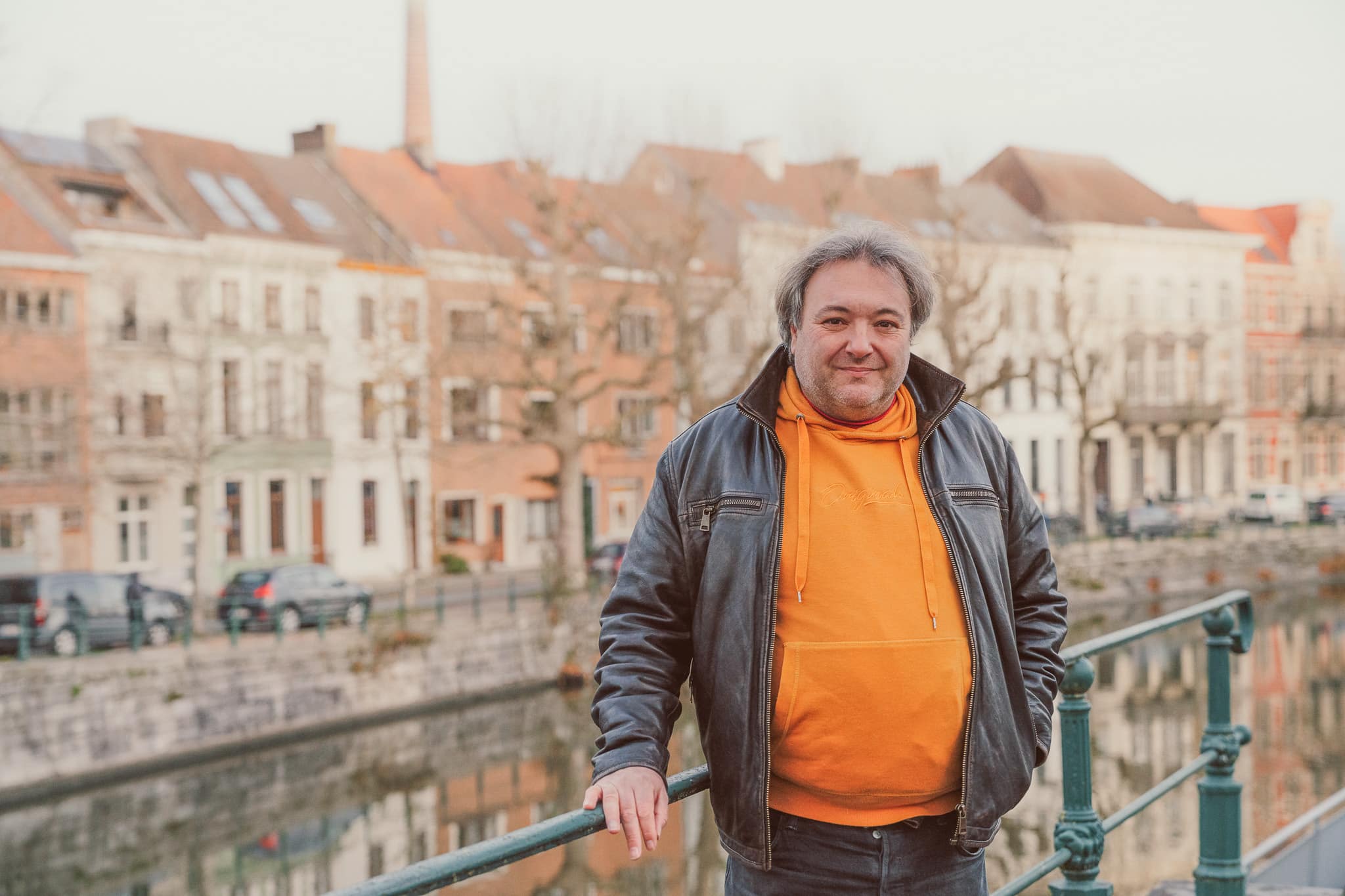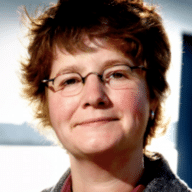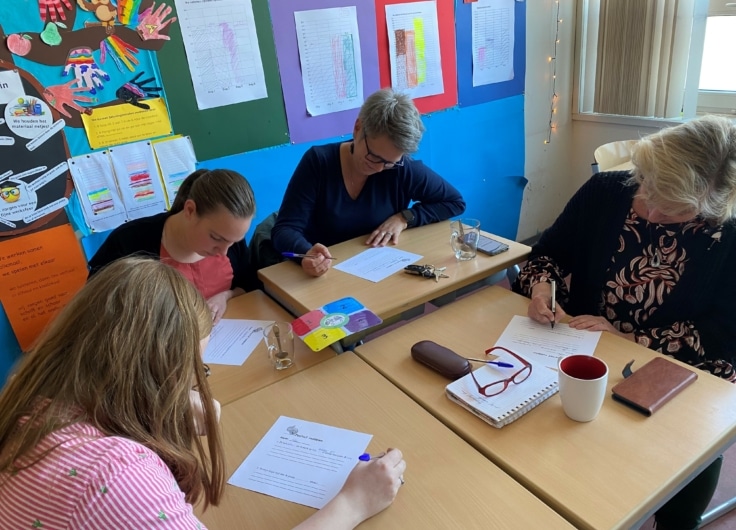‘Strive for Quality Education, but Beware of Unrealistic Expectations’
From systemic teacher shortages to declining language skills, education in Flanders and the Netherlands faces similar problems. So, what can they learn from each other? The low countries asked education specialists Pedro De Bruyckere and Erik Meester for their opinions. ‘Mastering something, achieving a result – that gives satisfaction.’
When it comes to education, experience makes experts of us all, so emotions flare up fast on the topic and you read eye-catching news or a controversial opinion from the world of education every week. Could Flanders and the Netherlands learn from each other in this field? Two experts give us their thoughts on what is happening in education.
Erik Meester is a primary school teacher and education developer at Radboud University Nijmegen. In columns in the Dutch newspaper de Volkskrant and on social media the e-meester – as his website is called (meester = master or teacher) – keeps his finger on the pulse of school life. Pedro De Bruyckere is an educationalist at the University of Utrecht and, until recently, at the Arteveldehogeschool in Ghent. He also heads Leerpunt, the knowledge centre tasked with boosting the quality of Flemish education. Like Meester, De Bruyckere reports on education and young people in the media and via his blog.
Reading comprehension
When we had this talk, the PIRLS results had just been announced. The Progress in International Reading Literacy Study (PIRLS) is an international comparative study of pupil performance in reading comprehension tested in fourth year primary. The results are worrying. Flanders is straggling at the back, with our ten-year-olds getting some of the lowest scores in Europe. These results are in line with the decline noted in the previous edition, in 2016. The Netherlands and Finland have deteriorated even more, but still achieved higher rankings than Flanders. And there are even more dismal findings in the international survey. Obviously the first question is, can Flanders and the Netherlands learn from each other when it comes to teaching reading?
In 2018, the Dutch language union, the Taalunie, set up a council for reading comprehension, the Taalraad Begrijpend Lezen. Its task was to develop an action plan and formulate concrete recommendations to improve the teaching of reading comprehension in Flanders and the Netherlands. After the PIRLS 2021 assessment, the council was transformed into the language council (Taalraad) with a view to it scrutinizing other language-related skills as well. “There is still one key element: priority in-service training for all teachers focused on reading comprehension”, says De Bruyckere, who has been a member of the language council since 2018.
Meester immediately agrees with De Bruyckere on the need for this, “Reading skills are in the spotlight now due to the PISA and PIRLS results. But what people often forget is that reading proficiency actually consists of several skills. First of all, it’s about technical reading – the generic skill of sounding out letters. Secondly, vocabulary is hugely important. Do you understand the words? Can you recognise expressions or figurative meanings? For this, background knowledge is also vital. You need to have or develop the ability to make connections, to see the context and the bigger picture. And finally, reading proficiency is linked to reading strategy. What sort of text is it? Am I reading a story or looking for particular information? So the whole question is which of these aspects PIRLS measures, or which urgently need remedying in view of the bad results.”
De Bruyckere: 'Reading pleasure is overrated. After all, how can you experience pleasure in reading if you can’t read well enough from a technical point of view?'
De Bruyckere: “Reading pleasure is overrated. I mean, perhaps it has received too much or too one-sided attention. After all, how can you experience pleasure in reading if you can’t read well enough from a technical point of view? Language is something technical that can simply be learned. It requires some effort, but the great joy is in the pleasure and satisfaction of mastering something, a text that you can understand.”
Meester: “Among academics, the consensus on this is very strong. Reading proficiency is not limited to language lessons either. On the contrary, being able to read and understand a text is crucial for all the other subjects too. One subject in which vocabulary can be greatly expanded is WO or World Orientation. In it very useful, field-specific, everyday words are dealt with in a clear context around a particular topic. Combining reading proficiency and WO is an ideal way of providing relevant content while significantly expanding vocabulary.”
For this reason, Meester himself developed a subject-integrated language method called Wetenswaardig
(lit. worth knowing). It allows pupils to develop their collective vocabulary and language skills – reading comprehension, speaking and writing – at the same time. “We should not become obsessed with reading comprehension alone”, adds Meester. The other language skills, listening and speaking and especially writing are poor, if not even worse than reading. Some time ago, a study was carried out in the Netherlands of the level of writing proficiency, in the form of a classic essay. It was dramatic. Pupils turned out to be unable to form complete sentences or write a coherent piece of text, let alone a classic essay.”
De Bruyckere: “In Flanders this is often blamed on ‘fill-in-the-blank’ workbooks, in which nothing more than single words is asked. Pupils are not trained to write rather longer, coherent texts. Articulating clearly and logically, building an argument and reasoning are no longer taught. Writing is barely expected outside Dutch and other language lessons.
‘Pooh, a book’
As of 2024, centralised tests will gradually be introduced into Flanders, to monitor the quality of education. The Netherlands has long had Cito tests at the end of primary school. Are language proficiency and text comprehension for subjects like world orientation also indirectly included in these? “The level of world orientation was last surveyed in 2015, but it didn’t give a picture of national mastery. We lost that insight in 2008, when the final test in the subject became optional in the Netherlands”, says Meester.
De Bruyckere: “In Flanders there is currently no centralised testing for world orientation, but it is possible that there will be one day. Our centralised tests are progress tests in the fourth and sixth years of primary school, plus two lots of tests in secondary education. The aim is to measure growth and thereby to help schools improve the quality rather than to assess individual pupils. In terms of language and mathematics initially, but that may well evolve more broadly.”
Does academic knowledge concerning good language teaching penetrate sufficiently into teacher training and from there into the classrooms? Reading comprehension should also be a major challenge for teacher training programmes. De Bruyckere says that teacher training courses have a great deal of freedom in how they teach reading instruction: “There are big differences in the importance and time, expressed in credits, given to it in the various teacher training programmes”, wrote the newspaper De Morgen recently. In general, it is fair to say that the time devoted to reading instruction in teacher training programmes halved between 2006 and 2016. There has been little or no research on this, every teacher training programme chooses its own goals and means of achieving them.”
 Erik Meester: 'We too often assume that teacher training students automatically have certain knowledge and skills. They don’t.'
Erik Meester: 'We too often assume that teacher training students automatically have certain knowledge and skills. They don’t.'© Dorieke
Meester: “I notice that an almost anti-intellectual climate often reigns in teacher training programmes. Educators and many teachers still barely read any books themselves. I hear it at refresher courses, when I recommend a book or refer to one, ‘Pooh, read a book about it…’. In my opinion, a major problem is that the ideology of social constructivism is still very much alive in primary school teacher training programmes (pedagogische academie voor het basisonderwijs, de vroegere normaalschool; Platteau & Klaver). The theory is that learning is a social process in which people themselves give meaning to their environment. But in practice it seems that the idea of the teacher as a coach who creates the optimum circumstances for the learning process doesn’t always or not sufficiently work. It is quite a challenge in teacher training. There are some things you just have to be clearly shown and have explained to you. You need targeted practice to master some knowledge and skills. That is why, on the basis of solid research, I advocate that every teacher should master Explicit Direct Instruction (EDI), with a clear teaching model and distinct teaching phases and techniques. Oddly, EDI is now widely taught to practicing teachers, or those who have just qualified. That means that there is little focus on it during their actual training.”
De Bruyckere: “In Flanders this method is often used, it’s just not described like that. It comes under ordinary ‘teaching’, for teaching writing in primary school, for example. Forming letters, acquiring the physical technique and ability to write is taught in this way, with explicit, often even direct instruction and the teacher demonstrating.”
Meester: “The didactic basis is getting renewed attention now. Which was necessary. It’s just that it doesn’t get transferred sufficiently to other content. Sometimes it seems that the basic skills, such as planning structured lessons and providing sufficient repetition, are neglected, because they rely on a minimum of knowledge and skills, which are often not imparted. I notice that we too often assume that teacher training students automatically have certain knowledge and skills. They don’t.”
De Bruyckere: “ I’ve noticed a change in Flanders too. For a long time, wellbeing and pleasure in learning seemed to be the priority. Now the realisation is also dawning that learning something, increasing your knowledge and skills, can actually provide pleasure and wellbeing, more independence and self-confidence. It doesn’t all have to be fun. But then again, what is fun? Turning everything into a game? Mastering something, achieving a result – that gives satisfaction.”
Shadow education
Reports regularly appear in the press about how, since corona, more pupils are reverting to homeschooling and taking the central exam board examinations. Is this an expression of dissatisfaction with the education system? De Bruyckere does not think so, “I don’t know whether these figures are so much higher because of corona. For some pupils, following online homeschooling and then taking the central board exams is a solution – for example for pupils who accelerate or skip a year. These are often the children of urban nomads and people who work abroad, I wouldn’t see too much social criticism in it.”
Meester: “What is becoming very apparent in the Netherlands is the rise of ‘shadow education’, the tutoring industry. The increase in private education manifests itself in schools outside the subsidised circuit, and in commercial agencies offering tutoring as preparation for the national tests. Strangely, learning outcomes continue to fall, despite all that tutoring.”
Meester: 'In the Netherlands, there is a rise of ‘shadow education’, the tutoring industry'
“At the last PISA survey, the tutoring industry in Flanders was for the time being amongst the smallest in the OECD countries”, adds De Bruyckere. “But that may well change when centralised testing is implemented here, too. You can see that the tutoring industry is already focusing very strongly on the entrance exam for medicine, for example.”
Meester: “It’s not only for exam preparation that many parents turn to tutors and expensive coaching or extra lessons. Think of all the students with dyslexia. Their ranks have increased dramatically, and they all need support. Where did this rise suddenly come from? Or could it be that a lot of these ‘reading problems’ developed due to the reading method taught?”
Rhetorical or otherwise, the question remains unanswered. De Bruyckere: “Education has set itself the goal of working towards equal opportunities. Since the corona epidemic many initiatives have been started to combat disadvantage. Take, for example, tutoring projects, summer school, and so on. Nonetheless we are finding it very difficult to reduce inequality. Subjects are sometimes not taught at a school for months because of the shortage of teachers. As a result pupils fall far behind and the lack of opportunity to catch up is even greater. Then private education becomes a booming business.”
Meester: “That’s also called opportunity hoarding. Parents who want to and can offer their children every possible opportunity and go outside the official school circuit to do so. Besides, the well-informed middle class manages to make much better use of the social services available, more so than the vulnerable groups for whom they were primarily intended. The Matthew effect, you might say. If that becomes the norm, then children whose parents don’t have the financial means will have fewer and fewer opportunities.”
Teacher shortage
There it is, that other hot topic that has dominated the educational news for months – the teacher shortage. Various politicians have launched proposals for tackling the shortage: easier access for lateral entrants, experiments with a four-day school week and a bonus for expert teachers. Could these be a possible remedy?
Meester: “The teacher shortage is no longer a temporary phenomenon; it has become systemic. It causes a lot of misery, is a threat to quality and even, in the end, to society. The greatest shortage is in the big cities. People often point to a ‘more difficult’ public, a variety of home languages. But in Amsterdam, the shortage is greatest because you simply can’t buy a home there with a teacher’s salary. What you do see in the Netherlands is that teachers who quit are recruited by private agencies and brought into schools on a freelance basis for certain subjects and tasks. Not the whole package, with departmental meetings, evaluations, standing in for sick colleagues and lunchtime supervision, because those things are not in the contract. It is a trend that causes resentment and inequality in a teaching team.”
De Bruyckere prefers not to make political statements but insists that what is positive should be maintained. “Make sure that those who are in teaching stay there”, is his attitude. “The youngest teachers are still often given the worst conditions – an awkward timetable, a lot of preparation, difficult classes and little guidance. Ideally, they should be able to build up their hours and teaching package gradually, with extra support. And the best teachers should get the ‘most difficult’ classes. Not as some kind of trial but as a form of respect, both with regard to their expertise and experience, and to the pupils.”
De Bruyckere: 'The youngest teachers are still often given the worst conditions'
Meester agrees: “It makes a lot of sense to give young teachers an induction period, with one day a week where they do no teaching but have time for all the other tasks, to follow a colleague, prepare a parent-teacher meeting and so on. For a while it means that the teacher is in front of the class one day less, but it pays off in the longer term. Providing solid support and time to settle in ensures new teachers can find their place in teaching and among the teaching staff. The chance that they will remain is much greater then.”
You often hear that more respect and social status for the teaching profession is a must, too. Would extending teacher training to a master’s degree, as is the case in Finland, make the teaching profession more attractive? De Bruyckere: “There are hardly any master’s in primary education in Flanders. The training programmes, certainly for lateral entrants, actually seem to be getting shorter. There is a proposal for a master’s in primary education, but it doesn’t exist yet.”
Meester: “In the Netherlands, teachers increasingly take a professional master’s degree after their primary teacher training, and there are now more and more academic courses, such as the Bachelor’s in Primary Education Pedagogical Sciences at our Radboud University. But a big difference with Flanders is that we do not have a separate training programme for nursery education. Primary education covers four- to twelve-year-olds.”
De Bruyckere: “I think the Bachelor’s in Nursery Education in Flanders is indeed an asset. And besides that there is also the programme for support workers in early childhood education. Only we see in practice that, because of the shortage of teachers, many nursery school teachers end up in primary school classes, for which they are not actually trained.”
Leadership
Obviously, a teacher is not alone. There is a team of colleagues and support staff, and there is the principal, too, who determines much of the school culture. Is the teacher shortage in some schools related to how the school is led? Meester: “A lot of young teachers leave because of poor leadership. Principals who are incompetent or who are themselves overstretched and have no time for proper supervision or staff management are not exactly motivating. We know from research that the impact of the principal in the whole school is greater than that of individual teachers per class. Notably, many academically trained teachers leave teaching because of poor leadership and lack of career development prospects.”
De Bruyckere: “That’s true, but I still want to plead for understanding for them. Let’s not kick those who are already down. There’s a huge shortage of principals too, certainly in primary schools. They are profiles with very high all-round employability, who have to have a whole range of skills, with a great deal of responsibility. And the conditions are not generous.”
 Pedro De Bruyckere: 'For a long time, wellbeing and pleasure in learning seemed to be the priority. Now the realisation is also dawning that learning something, increasing your knowledge and skills, can actually provide pleasure and wellbeing, more independence and self-confidence.'
Pedro De Bruyckere: 'For a long time, wellbeing and pleasure in learning seemed to be the priority. Now the realisation is also dawning that learning something, increasing your knowledge and skills, can actually provide pleasure and wellbeing, more independence and self-confidence.'© Ilias Teirlinck
Meester: “Certainly. But at the same time, I notice that if you want to improve teaching staff, the school leadership must be better too. In my opinion, it would solve a lot of problems if school principals were academically trained, so that they could establish a professional culture and apply researched methods. For good collaboration, the leadership simply must match up to the colleagues. I would like to add, by the way, that academically trained teachers do not necessarily give better lessons. Especially if excellent teaching is not the focus of their academic training. That was the case with the master’s I once followed – it was primarily about innovation and 21st century skills. Nor do I believe that all teachers need per se to be academically trained. On the one hand that’s unrealistic, it remains a mass profession, and, on the other, it is not necessary either. Teaching well at primary level can be perfectly well learned at college level. But with academic programmes you can, of course, tap into an additional target group.”
Balancing act
“We must raise the level.” That is the usual remark when the subject turns to education, but it also seems to be the conclusion embedded in the words of Erik Meester and Pedro De Bruyckere. The latter agrees, but immediately qualifies it, “You have to be very careful what you’re driving at. It’s not about doing more, comparing, raising the pressure of results-oriented performance. As a Fleming, I prefer the Jezuit’s motto plus est en vous – be the best you can be. It is a balancing act to get the best out of pupils with solid education. In full awareness of all the pressure and mental problems that undeniably exist. Good education should provide nurture and make it possible to experience success. To enable people to become the best version of themselves.”
De Bruyckere: 'It’s not about doing more, comparing, raising the pressure of results'
Meester agrees wholeheartedly, “I often talk about the prison of low expectations. Self-confidence and self-esteem can be boosted by raising the bar just that little bit higher, so that you can surpass yourself and increase your potential. That not only applies to pupils who underperform when the expectations are too low, it applies equally to teachers and other educational professionals.”
Conclusion? We can expect quite a lot from quality education, but we should also guard against unrealistic expectations. This quote from Erik Meester is worth keeping in mind, “Education cannot compensate for everything that goes wrong in society, but schools do have a moral obligation to try.”









